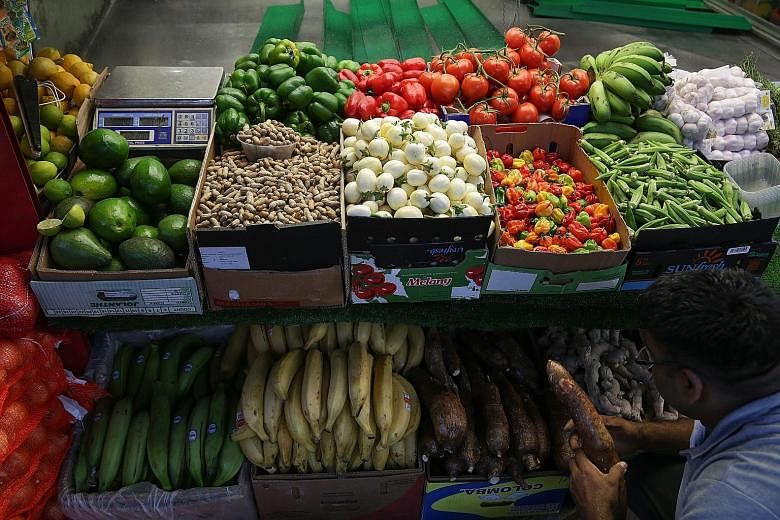If produce were cheaper, we would all eat better and that would lead to less disease. Would it actually work?
The case starts with the uncertain proposition that decreasing prices will increase the consumption of foods that even rich people don't eat much of.
It moves on to the uncertain proposition that eating slightly more of these foods will have a significant impact on public health.
Along the way, it is clouded by people's inability to remember what they eat, the difficulty connecting diet to health and the researchers' problem in generating data on their projects.
If you want a guarantee, the saying goes, buy a toaster.
A toaster, this ain't. But there is interesting, relevant research.
First, we have to consider whether lower prices will get people to eat more vegetables.
Economics is pretty clear that a price decrease on almost anything will increase demand, but it is hard to know by how much.
This problem is compounded when it comes to vegetables.
Buoyed by good intentions and reduced prices, you buy a nice assortment of vegetables. Do all of them make it to your dinner table?
The answer is a resounding "sometimes", given that about half of the produce in the United States is wasted, with much of that loss coming at the household level.
We have all done the crisper-to- compost walk of shame.
If people buy more, will they eat more? Studies of produce subsidies show varying results. A 2013 review of the research concluded that subsidies do change behaviour.
But a small study done in Palo Alto, California, and published last year found that a subsidy increased purchase but not consumption.
A study of the Supplemental Nutrition Assistance Programme participants in Massachusetts found a self- reported increase in fruit and vegetable consumption, but the expenditures on their benefit cards did not match the reported increase.
Mr Parke Wilde, an agricultural economist at Tufts' Friedman School of Nutrition Science and Policy, and a co-author of the paper on the study, has two possible explanations. The first is simply that people aren't very good at remembering what they ate.
The second is what he calls the "persuasion effect". Not all fruit and vegetables were covered by the subsidy and participants may have been eating other produce as well. It is easy to track sales but hard to track consumption.
The preponderance of the evidence seems to indicate that a decrease in price is likely to increase purchasing and that, in turn, will probably increase consumption, at least a little. The US Department of Agriculture estimates that a 10 per cent price drop would drive a 2 to 5 per cent increase in consumption.
A recent study attempting to model the impact of produce prices on health concluded that the increase would be larger - about 14 per cent. The model predicts that this increase would prevent or postpone about 150,000 deaths from cardiovascular disease by 2030.
The researchers acknowledge that they are working with imperfect evidence. Ms Marion Nestle, professor of nutrition, food studies and public health at New York University, said: "We know from correlational evidence that people who eat more fruit and vegetables are healthier than those who do not. We also know that fruit and vegetables are sources of vitamins, minerals, antioxidants and fibre, and are low in calories - all good things."
THE WASHINGTON POST

